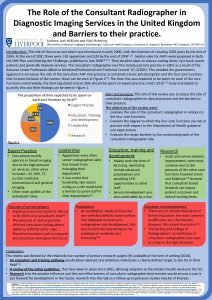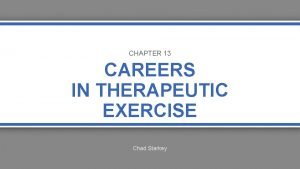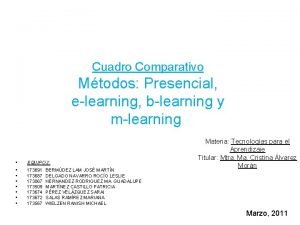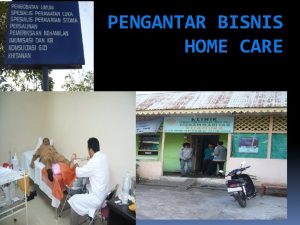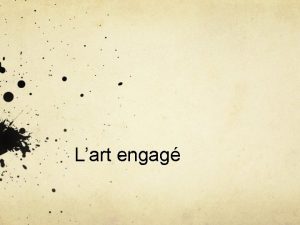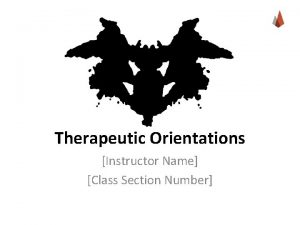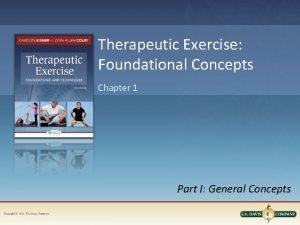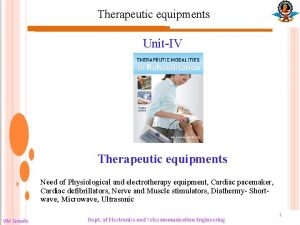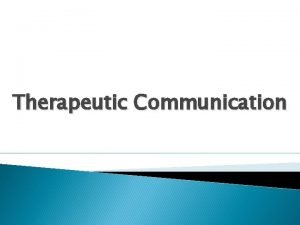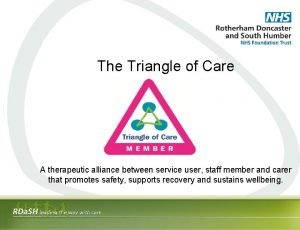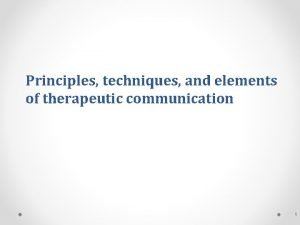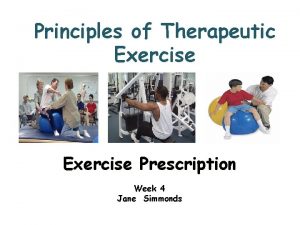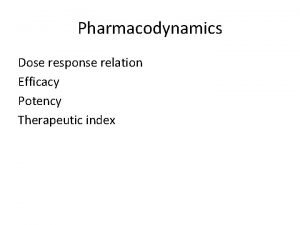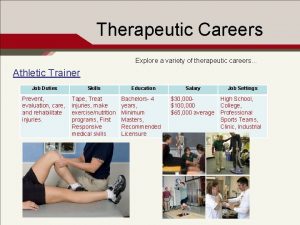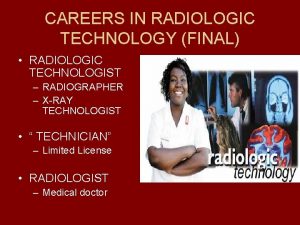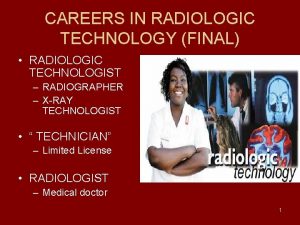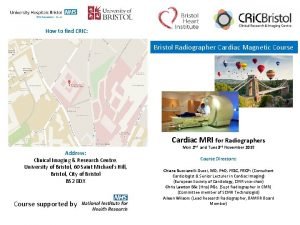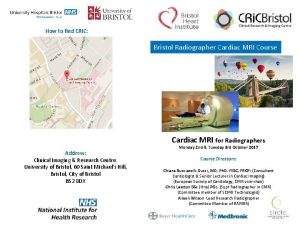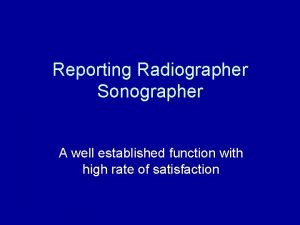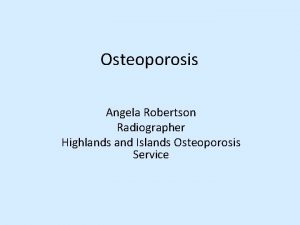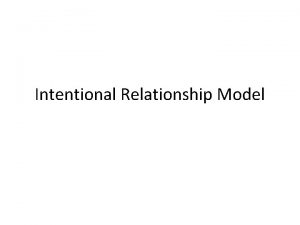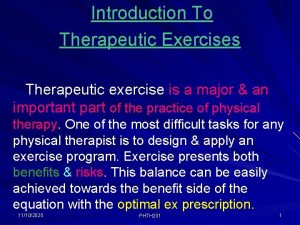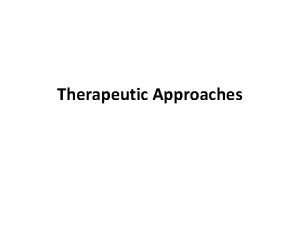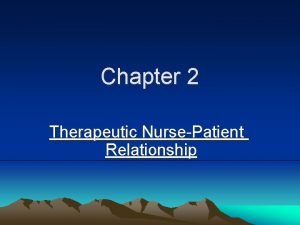Therapeutic Radiographer KS 5 A home learning careers


























- Slides: 26

Therapeutic Radiographer KS 5 A home learning careers lesson In association with ©The. WOWShow/Votesfor. Schools 202 0

Subject links: This information may link to topics you study in Science, PSHCE, Careers, Health and Social Care, Critical Thinking and Selfassessment. Skills: Evaluation, teamwork, communication, empathy, organisation, problem solving. Learning intentions: To be able to explore interests, values, abilities and attitudes in relation to options in learning, work and future careers. ©The. WOWShow/Votesfor. Schools 202 0

1 Starter quiz (2 mins) Which of these statements is true or false? Move through the power point to find out and reveal the details. There are lots of things that Scans will always won’t show on a scan, a doctor FALSE needs a history blood show whatand is often wrong. tests too. Plain X-rays and CT scans use X-ray radiation whereas other scans don’t. Anare X-rays. gives you FALSE All scans one image, for example of your chest or a limb. Different are X-rays are bestscans for bones, CT and MRI scans needed to TRUE needed forare different look at the body in more detail. Radiation is given off during XScanssome cans have rays and. TRUE can sidetheeffects. increase risk of cancer. Sometimes scans can show Scans in can have abnormalities the body that do TRUE not affect the health of the irrelevant findings. person. Ultrasound scans are used for all agesonly and genders view are usedtofor FALSE internal organs. Radiographers have high levels Scans need to be of expertise in interpreting TRUE interpreted byor CT complex scans like MRI scans. specialists. parts of the body. pregnant women. ©The. WOWShow/Votesfor. Schools 202 ©Votesfor. Schools 2020 0

1 b Introduction These are unprecedented times and this lesson and the reflective journal have been created to help you. This is a new experience for everybody which will be spoken about for years. During the lessons you will be invited to record your experiences in the journal. You could make history! Watch The WOW Show Therapeutic Radiographer Careers Special here. Part 1 Work your way through the Power. Point. Part 2 Use your journal to answer the questions. Part 3 Use the home learning tips to help you. Finally complete the survey monkey and tell us what you thought: https: //www. surveymonkey. co. uk/r/wow-radiography ©The. WOWShow/Votesfor. Schools 202 ©Votesfor. Schools 2020 0

2 What is a Therapeutic Radiographer? In your journal: Take two minutes to write down as many things as you can remember that you saw the Therapeutic Radiographer do in the film. Hours: 37. 5 per week Salary: £ 25, 000 + A Therapeutic Radiographer is one of the 14 Allied Health Professions (AHPs), where you will help people diagnosed with cancer. You’ll collaborate with other healthcare professionals to create individual treatment plans for people. Blending technical expertise with emotional support, you’ll deliver accurate treatments and hope to patients and their carers. Pattern: Regular days or shifts Healthcare: The organised provision of medical care to individuals or a community. In your journal: Did you find anything surprising? Write it down. ©The. WOWShow/Votesfor. Schools 202 0

3 a What does a Therapeutic Radiographer do? In your journal: After watching the film, what did you think about the many different roles within the career? What did you think about the pathways into the career? Lesson learned! In the early days, people thought X-rays passed through the body as harmlessly as normal light. It wasn’t until Thomas Edison’s assistant Clarence Dally, who had worked extensively with X-rays, died of skin cancer in 1904 that people started taking the health concerns about the new technology seriously. https: //safeshare. tv/x/ss 5 eda 709 cdba 43# 0: 001: 40 As a Therapeutic Radiographer, you’ll be part of a team helping people who are dealing with cancer. Based in a hospital, you’ll use some of the most complex and advanced technology to treat tumours. ©The. WOWShow/Votesfor. Schools 2020

3 b What does a Therapeutic Radiographer do? In your journal: Have you ever broken a bone? What were your experiences of having an X-ray? What other ways can health professionals find out what has gone wrong with your body? X-ray: A type of radiation that can go through many solid substances, allowing hidden objects such as bones and organs in the body to be photographed. Therapeutic Radiographers use doses of X-rays and other ionising radiation to treat medical conditions mainly cancer and tumours. You will work to high levels of accuracy to help ensure the patient's tumour or cancer receives exactly the right dose of radiation, at the same time as ensuring the surrounding normal tissues receive the lowest possible dose. Fun fact! The scientist Roentgen started out by experimenting on his wife. One of his first Xrays was of his wife Anna Bertha's hand with her wedding ring on her finger. ©The. WOWShow/Votesfor. Schools 202 0

4 Would you like to play the Therapeutic Radiographer game? Click on the game to see where a career in Radiography could take you. There are two different professions Therapeutic and Diagnostic Radiography. The game will show you both. Therapeutic Radiography: Can have a healing effect on cancer illness; helping cure cancer, illness or relieve symptoms where possible. Diagnostic Radiography: Identifying a particular illness or injury using a combination of signs and symptoms. ©The. WOWShow/Votesfor. Schools 202 0

5 a What qualities does a Therapeutic Radiographer need? In our journal: Have you ever been into hospital? How important was the communication with the people you met there? • • Important qualities: Confident with, and curious about, new technology. A good communicator, able to switch between talking to peers and patients. Compassionate and able to support patients through a worrying time. Excellent observation skills, and safety-conscious. https: //safeshare. tv/x/425175004# Compassion: A strong feeling of sympathy and sadness for the suffering of others and a wish to help them. 0: 001: 14 Fun fact! Therapeutic Radiotherapy is a treatment used to destroy cancer cells, using radiation delivered by a machine called a linear accelerator. The most common types of radiotherapy use high energy X-ray beams, such as photons, but other particles can be used for example protons or electrons. ©The. WOWShow/Votesfor. Schools 202 0

5 b What qualities does a Therapeutic Radiographer need? In your journal: How are your observation skills? Why are observation skills important in healthcare? What would you need to look out for? On the other hand, subjective observations are signs that cannot be measured, and are usually verbal communications from a person on how they feel, such as nausea, an upset stomach, sore muscles and headaches. Objective observation is visible and measurable signs that are usually factual. This includes monitoring reactions to treatment and side effects. Observing changes to breathing and tumour size on specialised scans taken during radiotherapy (Radiation Therapy) treatment. Observing to ensure patient stays in exact position during treatment process via cameras outside treatment room. ©The. WOWShow/Votesfor. Schools 202 0

5 c What qualities do you need to be a therapeutic radiographer? In your journal: What qualities do you need to have a career in health? Write them down. Self-esteem is important too, how can you improve yours? understanding resilience empathy Teamwork is important in healthcare as many people may be involved in the diagnosis and treatment of a person. co-operation teamwork communication problem solving Self-esteem: Belief and confidence in your own ability and value. interpersonal skills ©The. WOWShow/Votesfor. Schools 202 0

6 Challenging stereotypes In your journal: Read the scenario of Kate and Maddie, what advice would you give to Kate? Stereotype: A widely held but fixed and over simplified image or idea of a particular type of person or thing. What do you think: Kate is 16 years old and lives on a big estate in Manchester. Maddie is 17 years old and is Kate’s neighbour and best friend. In your journal: Why do you think Maddie thinks that it will be so difficult, what are the barriers to this happening? Kate and Maddie are chatting on zoom. Kate tells Maddie that she wants to be a consultant in the future. Maddie says that no-one from their school has ever become a doctor, so it will be almost impossible. ©The. WOWShow/Votesfor. Schools 202 0

7 What makes being a Therapeutic Radiographer special? In your journal: Confidence and teamwork is really important in this role. How confident are you when you talk to people? You will watch patients make progress and seeing them improve is tremendously rewarding. You will be a key part of a wider, integrated team, working with and advising other healthcare professionals to create holistic care for those in need. Click on the picture to hear Hassan’s story and the proton therapy team that work together to treat him. Teamwork: The ability of a group of people to work well together. ©The. WOWShow/Votesfor. Schools 202 0

8 a What is cancer? There’s a lot of information about different types of cancers and different treatments. But for starters, here are the basics: • • • Cancer is a disease of the cells, so it means in a person with cancer their cells aren’t acting normally The cause of most cancers is unknown. Sometimes cancer can be cured, and cancer treatments are getting better all the time. Some of the treatments do have side effects – things like losing your hair, feeling tired all the time, being sick and either losing or putting on weight. Treatment can last between a few months and a few years. You can’t catch cancer from other people. In your journal: Write down your thoughts about cancer. Are there any things you know increase the risk of cancer? Do you know any of the treatments for cancer? ©The. WOWShow/Votesfor. Schools 202 0

8 b What is cancer? In your journal: Would you know the symptoms of cancer if you or a friend started to suffer from them? What would you do and say? Mole changes. This could be a change in the size, shape, colour or texture of a mole, or if it starts bleeding. Lumps, bumps and swellings. These could be anywhere in your body. Pain. The kind of pain that’s persistent and extreme, and doesn’t go away when you take painkillers. Unexplained tiredness. When you feel completely exhausted, all of the time, and even a good night’s sleep doesn’t help. Significant weight change. This could be weight loss or weight gain, when you haven’t changed your diet, how much exercise you’re doing. ©The. WOWShow/Votesfor. Schools 202 0

9 How does Therapeutic Radiography work? Radiotherapy (Radiation therapy) is the use of high-energy radiation to damage cancer cells' DNA and destroy their ability to divide and grow. Radiotherapy may be used to cure cancer, to relieve a cancer patient's pain or alleviate other symptoms. 0: 000: 51 In your journal: What do you know about radiation? What would your worries be if you had to have radiation therapy? Click on the picture to watch the video explaining how radiography is used in the treatment of cancer. Preparation for radiotherapy is focused on targeting the radiation dose to the cancer as precisely as possible to minimize side effects and avoid damaging normal cells. https: //safeshare. tv/x/ss 5 edd 83 b 166 e 1 e# ©The. WOWShow/Votesfor. Schools 202 0

10 What are the side effects of cancer treatment? Click on the picture to play the video from the Teenage Cancer Trust. Some people might struggle with side effects, while others don’t feel too bad. Side effects may include: • • • Losing your hair (depending on treatment area) Feeling tired Lack of concentration Feeling sick Skin problems Changes in appetite Constipation or diarrhoea Mouth ulcers or sores Sleeping problems https: //safeshare. tv/x/3205 dn_H 0 O 0# In your journal: How would you support someone going through cancer treatment? It’s a really tough situation for everyone and you and they probably feeling scared, upset, confused angry. 0: 000: 39 ©The. WOWShow/Votesfor. Schools 202 0

11 a How do you become a Therapeutic Radiographer? In your journal: Were you surprised at the study pathway for this profession? Would you like to study on a course with lectures and practical experience? 0: 000: 40 Click on the picture to listen to the pathway into a career in Therapeutic Radiography. You will work with patients and colleagues to design treatment programmes, and support patients until their treatment ends. You can build up a genuine relationship with patients, mixing emotional support with technical expertise. ©The. WOWShow/Votesfor. Schools 202 0

11 b How do you become a Therapeutic Radiographer? - Study To become a Therapeutic Radiographer, you must first successfully complete an approved degree or Masters in Radiotherapy. Degree Duration: 3 -4 years full time Once you’ve successfully completed your degree you must register with The Health and Care Professions Council (HCPC) before you can start practicing. Entry requirements: Two or three A levels, which could include physics, chemistry or biology/human biology (only one of you’re a levels needs to be in a science). Five GCSEs (grades A-C or 5 -9), including English language, maths and science Equivalent qualifications: A BTEC, HND or HNC which includes science A relevant NVQ A science-based access course Equivalent Scottish or Irish qualifications ©The. WOWShow/Votesfor. Schools 202 0

11 c How do you become a Therapeutic Radiographer? - Study Click on the pictures to find out more. ©The. WOWShow/Votesfor. Schools 202 ©Votesfor. Schools 2020 0

11 d How do you become a Therapeutic Radiographer? - Routes into AHP careers Click on the picture to find out more about becoming a Therapeutic Radiographer and other Allied Health Profession (AHP) careers. ©The. WOWShow/Votesfor. Schools 202 ©Votesfor. Schools 2020 0

11 e How do you become a Therapeutic Radiographer? - Study Click on the pictures to find out more about which universities offer Therapeutic Radiography. ©The. WOWShow/Votesfor. Schools 202 ©Votesfor. Schools 2020 0

11 f How do you become a Therapeutic Radiographer? – Interviews Top tips with interviews: 1. Interview preparation Preparation for the interview is incredibly important. 2. Before you go into the interview room Stay calm. Keep hydrated. Eat well. 3. Going in First impressions count. Make it a good one by dressing smartly, even if the interview dress code is casual. 4. In the interview Listen carefully to what you're asked. Ask them to clarify what they are asking if you don't understand the question. 5. Concentrate on what you're talking about. Talk slowly and clearly; stop to think about your answers. 6. Answer questions honestly. 7. Ask questions that you have thought about carefully. ©The. WOWShow/Votesfor. Schools 202 ©Votesfor. Schools 2020 0

11 g How do you become a Therapeutic Radiographer? – Personal statement Introduction: Why you want to apply/study that course. Why you think you would be a good student on that course. Why should the university pick you over another applicant. A level studies: In this section discuss what you have enjoyed the most about each of your subjects at A 1, where possible mention the competencies you have been able to gain during this time. If possible link any books you have read to a module. E. g. your studies on the heart led you to study … Work experience: In this paragraph you should talk about any work experience, volunteering or paid jobs you have undertaken. Mention what YOU did - it’s important that you do not overstate what you did. Also, reflect on what you have learnt and how it applies to the course you want to apply for. Wider learning: Discuss anything here outside of your standard lessons which has taught you skills or confirmed your desire to study the chosen subject. This may include trips, books, videos or talks. Hobbies and interests: This is your opportunity to show the admissions tutors that you are a well rounded person. You should talk about how you use your free time, any awards you have won and what you enjoy doing. Conclusion: Finish your personal statement by summarising your motivations to apply for the course and briefly mention your future plans in regards to the subject. ©The. WOWShow/Votesfor. Schools 202 ©Votesfor. Schools 2020 0

12 Completing your reflection journal: Complete your journal open and honestly to reflect your thoughts and feelings on a career in Therapeutic Radiography. Return your journal to school and discuss your thoughts with your teacher. Do you have any further questions? Complete the survey monkey using the link below to give us your thoughts on the topic. Thank you. https: //www. surveymonkey. co. uk/r/wow-radiography ©The. WOWShow/Votesfor. Schools 202 0

Further help and information: Useful links: Qualifications and training: Apprenticeships: Other support: Health Careers, Podiatry Careers Info: https: //www. healthcareers. nhs. uk/careerplanning/study-and-training Health Careers Apprenticeship link https: //www. healthcareers. nhs. uk/careerplanning/study-andtraining/apprenticeships-traineeships-andcadet-schemes Health Careers Work Experience Toolkit: https: //www. healthcareers. nhs. uk/sites/ default/files/documents/workexp. Teache rs. Guide%5 Bfinal%5 D%20%282%29. pdf Health Careers, AHP Careers https: //www. healthcareers. nhs. uk/exploreroles/allied-health-professionals Careers in Therapeutic Radiography: www. allaboutcareers. com/careers/jobprofile/therapeutic-radiographer UCAS website https: //www. ucas. com/careers-advice More on Allied Health Profession careers https: //iseethedifference. co. uk/updates_cate gories/therapeutic-radiography/ The National Careers Service: https: //nationalcareers. service. gov. uk/ NHS Jobs, Apprenticeships https: //www. jobs. nhs. uk/xi/search_vacanc y/? action=search&keyword=Apprentice The City and Guilds qualifications and apprenticeships: https: //www. cityandguilds. com Apprenticeship advice: https: //www. gov. uk/topic/furthereducation-skills/apprenticeships BBC Bitesize is also a good source of information: https: //www. bbc. co. uk/bitesize/careers Treatment at The Christie: https: //www. christie. nhs. uk/patientsand-visitors/your-treatment-andcare/treatments/radiotherapy/aboutus/therapeutic-radiographers Step into the NHS Resources: https: //www. stepintothenhs. uk/ Virtual Reality, A Day in the Life of an AHP: https: //hee-vr 360. azurewebsites. net/ ©The. WOWShow/Votesfor. Schools 202 ©Votesfor. Schools 2020 0
 What is a consultant radiographer
What is a consultant radiographer Careers in therapeutic exercise
Careers in therapeutic exercise Cuadro comparativo entre e-learning b-learning y m-learning
Cuadro comparativo entre e-learning b-learning y m-learning Arti dari homecare
Arti dari homecare Perbedaan home care dan home visit
Perbedaan home care dan home visit South carolina mobile home parks for sale
South carolina mobile home parks for sale Flower plural
Flower plural Come home come home jesus is calling
Come home come home jesus is calling Oak springs rv park
Oak springs rv park America my home sweet home
America my home sweet home Arman home sweet home
Arman home sweet home She said that, home economics stands for the ideal home.
She said that, home economics stands for the ideal home. Home sweet home survive
Home sweet home survive Learning task 2 look for a health product at home
Learning task 2 look for a health product at home Learning task 7 create a self portrait
Learning task 7 create a self portrait Texas home learning
Texas home learning Therapeutic orientations
Therapeutic orientations Penyakit masyarakat sasaran bintibluh
Penyakit masyarakat sasaran bintibluh Therapeutic exercise chapter 1 mcqs
Therapeutic exercise chapter 1 mcqs Microwave diathermy block diagram
Microwave diathermy block diagram Therapeutic drift
Therapeutic drift Therapeutic communication introduction
Therapeutic communication introduction Traingle of care
Traingle of care Therapeutic story writing starters
Therapeutic story writing starters Characteristics of therapeutic communication
Characteristics of therapeutic communication Principles of therapeutic exercise
Principles of therapeutic exercise Therapeutic index
Therapeutic index
